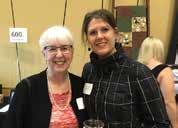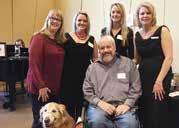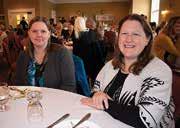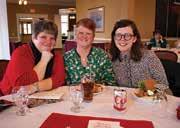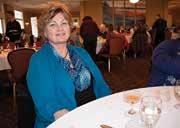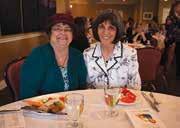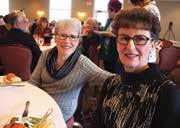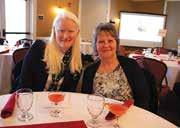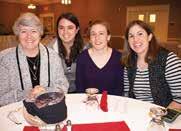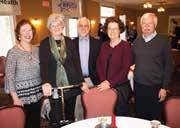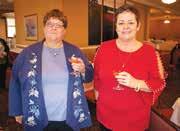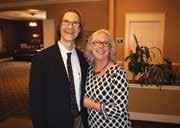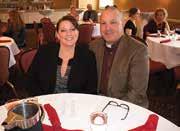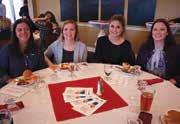WOMANthe
Rosie Award Winners


The Woman Today honors women as a driving force
• New guidelines on blood pressure
• Artist takes intimate approach with students
• Local country band heads for Nashville







The Woman Today honors women as a driving force
• New guidelines on blood pressure
• Artist takes intimate approach with students
• Local country band heads for Nashville





It’s easier with our community bank as your partner. For over 100 years, we’ve helped our neighbors finance new construction and much more.
· Local approval and service
· Flexibility and confidence during your project
· Guidance and advice from a local lender
· Competitive rates
· Hassle-free closings
Come talk to us or apply here:
the kids have convinced me and “naughty is the new nice.” while…but then realized they are just itself is a valuable lesson. Little light-hearted banter would turn into family New Year’s Day party. is an opportunity to set new upcoming year. This year, thanks angle – rebranding! We looked be; for some it was ways to it was learning new hobbies
honing in some areas of your family’s interests, this issue of you covered with valuable your hopes, goals, and/or
Today and find great articles college preparations; Family Gras food fare; and Hobbies




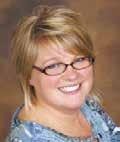
you may enjoy our stories of new, slightly “funny,” option story of a young girl’s fresh start Ness Family opens their doors up to with a new chapter in
Neal Ronquist
EXECUTIVE EDITOR
that you find great promise in back, relax, and enjoy all that year ahead.
Rick Lubbers
ADVERTISING DIRECTOR

Megan Wedel
publication is made available

ADVERTISING MANAGER
let them know that you liked Today. And if you are interested can contact Stew Hunter at
Eric Olson
The Woman Today was proud to host this year’s Rosie Awards in April to recognize “women as a driving force” in our community. Inside this issue, you’ll find the stories behind these remarkable women who were awarded in six categories: volunteerism, advocacy, leadership, spirit, mentorship and the allencompassing Rosie Award.
David Ballard Photography, Derek Montgomery Photography, Katlyn Kretzschmar Photography, Cole's Wild Bird Products, Inc., St. Luke's, Derek Neas/Duluth News Tribune, Marc Andreo Photography, Kelsey Roseth, Shawna Vine Photography, Chuck Rang, Kathryn Nordstrom/Studio Soulshine, Michelle Truax
We’d like to thank the event’s sponsors, Essentia Health and Minnesota Power Employees Credit Union, and judges: Ali Comnick, Renae Ronquist, Kelly Finnegan, Annie Lepper and Ashley Lindsey. Also, thanks to readers who nominated a woman for the Rosies. You all helped create a positive, fun evening where we could offer support, encouragement and recognition to the great works happening around us every day.
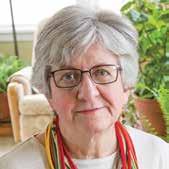


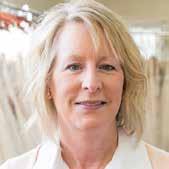



62
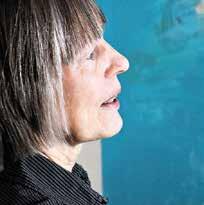
The


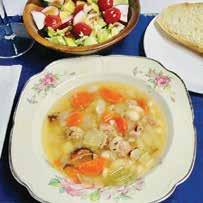


48

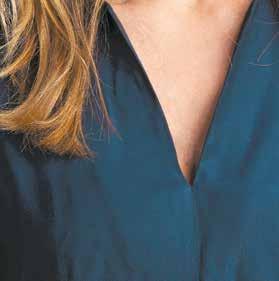



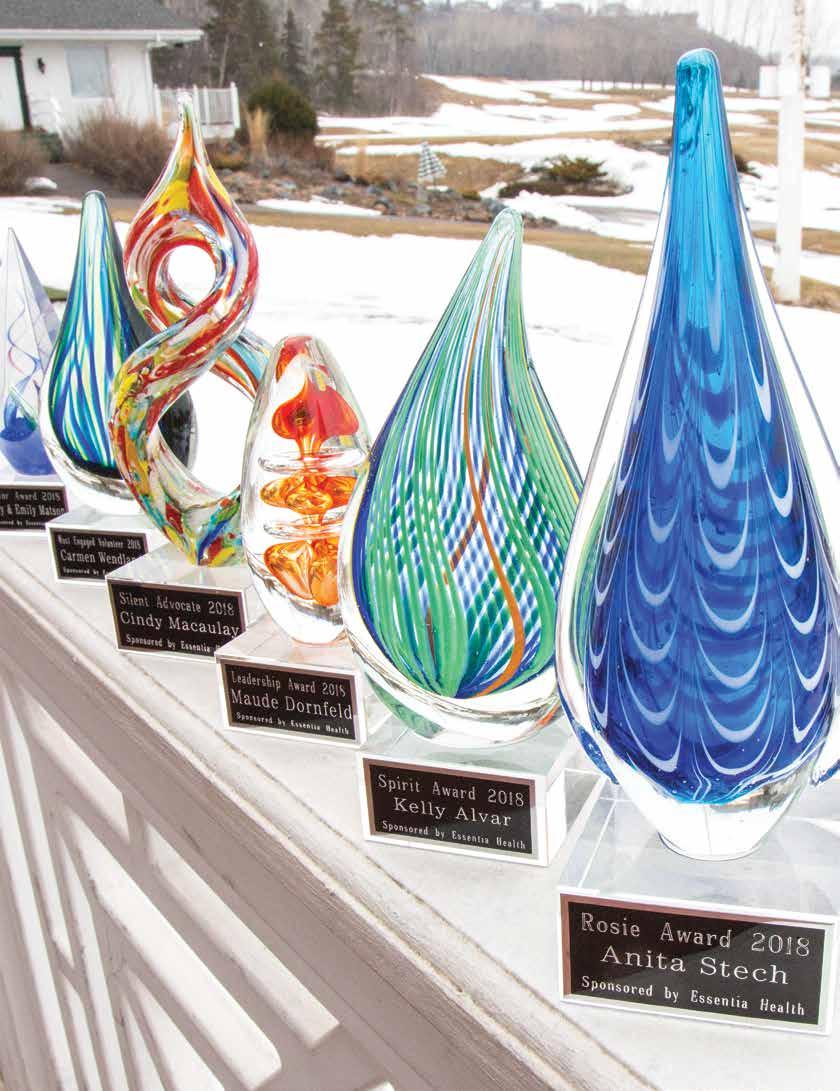
The Woman Today hosted the second annual Rosie Awards April 10 at Northland Country Club. Six women were recognized for their achievements in a variety of categories, all of which celebrated “women as a driving force.” Writer Andrea Busche shares their stories on the following pages.
2018 Sponsors
















 By Andrea Busche
By Andrea Busche
the Riveter is a cultural icon in the United States, where “Rosie” is the living embodiment of feminism and women’s economic power. She is simply a woman who gets things done.

Thus, the honor dubbed the “Rosie Award,” recently given out at The Woman Today’s “Women As a Driving Force” ceremony, was a special namesake distinction, only befitting a woman of tremendous drive, ambition and hard work.
This special recipient is Duluthian Anita Stech. She received not just one, but 15 nominations from her colleagues and peers.
From her work with public access TV and Duluth girls’ hockey to volunteering at her church and more, she is a woman with enough purpose to fill 10 lifetimes. There is no one better suited to represent our dear Rosie.
Anita, along with her two sisters, was born and raised in Duluth’s Lester Park neighborhood. Some of her earliest memories are of her parents’ hard work. Her dad worked at the Coolerator plant, which manufactured appliances, later transitioning to janitorial work after the plant closed its doors. Her mom was a milliner, an artisan who makes hats.
Anita’s mother was definitely a “Rosie” of her day. “She owned her own shop, Benda’s Millinery, back in the day when no mothers worked,” Anita said. “She was known professionally as Mrs.
Louis Benda, so it was like she didn’t even have her own name,” she said. Family finances were tight, and Anita began working when she was a teenager. Her first job was at the Lester Park Library, then at Fannie Farmer candy shop and American Linen Supply.
Anita enjoyed radio broadcasting and always knew she wanted to attend college. Through a combination of student loans and scholarships, she enrolled at the University of Minnesota
Duluth, where she graduated with a degree in speech with a broadcast emphasis.
During her time in college, Anita worked as a station manager at KUMDFM. While in this role, she became friends with a colleague, Harlan Stech, whom she said was “the only one who knew anything about classical music.”
Anita and Harlan were friends for a decade before they became romantically involved. They both went on to attend Michigan State University, where Anita earned a master’s degree in television and radio, and Harlan earned a master’s degree, as well as a Ph.D., in math.
While Harlan worked as a professor at Virginia Tech, Anita worked in media. She was passionate about local programming and the possibilities for cable TV. “People who never had a voice found one through Public Access TV,” she said. “There was no YouTube at that time. It was only CBS, ABC, NBC and PBS. Once video cameras became a thing, that really changed everything.”
At that time, it was considered radical to air school board and city council meetings in their entirety. Anita worked hard to change that. In addition to her work as a consultant, professor, and her work for the Minnesota Cable Communications

Board, Anita has fond memories of producing programming out of the back of her Volkswagen. She chuckled at how different things were back then.
Harlan and Anita were married in 1982. They moved to Iowa City for a few years, then to Christiansburg, Virginia. Along the way, the couple welcomed three daughters: Katy, Marcy and Amy. All three of their adult daughters are now successful in their careers, no doubt following the example of both their parents and grandparents.
The Stechs moved back to Duluth in 1985, where they settled into the east end of town. In addition to raising children and helping care for elderly relatives, Anita found plenty of social causes to keep her occupied.
When daughter Katy wanted to play hockey, Anita banded together with others to create a hockey forum for girls. This ended up morphing into the Duluth Girls’ Hockey Association.

Anita was involved in the formation the Heritage Sports Center, and still serves on its Foundation Board. She works on the Civility Project, a catalyst for respectful communication during political and other debates.
She worked with a leadership group at the East High School Association for several years, she is the president of



the Longview Garden Club, and volunteers at her church, Pilgrim Congregational. She co-founded “Nice Girls of the North,” a monthly sale featuring handmade products crafted by local women.
Anita also owns her own business, Cut Loose Creations, where she “upcycles” t-shirts and other used items into a variety of products. She uses her seamstress skills to create something she dubbed “cover ups,” which are comfy adult bibs that are whimsical (think UMD Bulldog-themed) and provide more dignity to the wearer.
Among her 15 Rosie Award nominations, Anita’s peers and colleagues shared many positive qualities about her. One discussed her “tireless effort to make her community better.”
Another spoke of Anita’s “passion for gender equity for our youths, and promoting products made by local women.” Anita has been described as talented, innovative, creative, caring, thoughtful and dedicated.
There are a lot of labels we could attribute to Anita Stech, but for today, we’ll just call her Rosie. D
 By Andrea Busche
By Andrea Busche
Asshe leads a tour of Life House’s downtown campus at the corner of West First Street and First Avenue West, Maude Dornfeld’s eyes sparkle with pride. She talks as she walks, explaining how Life House provides a drop-in center, a housing program, and mental health services for one of our most vulnerable populations — homeless youths.
In her role as Life House’s executive director, which she has held since 2013, Maude has led the way in seeing many of its initiatives through to fruition. But her primary goal for Life House is to ensure they will be, as their tagline says, “Here today. Here tomorrow.”
The Woman Today is pleased to introduce you to the recipient of our Leadership Award.

While today, she is a competent, well-educated woman, Maude relates to many of the challenges her clients face. Born in St. Paul, her father died suddenly when she was 12. “This made for a very difficult adolescence for me in many ways,” she said, “Which I think is how I eventually found my way to this work.”
Throughout the next few years, Maude struggled. She completed two years of college, but dropped out because of failing grades. She later suffered with severe clinical depression, requiring hospitalization.
Eventually, however, she bounced back. She enrolled in the sociology
program at Macalester College, where she discovered her niche. “I loved it,” she said. “The world started making sense to me.” It was during college that Maude met her husband, Ken Dornfeld, now a radiation oncologist at Essentia Health.
The Dornfelds moved a couple times over the years, living in Ann Arbor, Michigan, for 10 years, and Iowa City for five. Maude worked in marketing research for most of her
career, while Ken concentrated on his profession as a doctor. They, along with their three daughters, Celeste, Beatrice and Hazel, moved to Duluth 10 years ago, and reside in the Lakeside neighborhood.
Life House’s downtown campus is a place where individuals can shower, eat, do laundry, sleep and receive mental health services. There is also off-site housing, both in the form of regular apartments and through the Sol House, catering to individuals who have been victims of sex trafficking. There are cleverly named classes, such as “Cribs, Yo” (where youths learn about housing) and “Girl Talk.” There is an employment course, aptly named “Legitimate Hustle,” where the youths operate a candle-making enterprise. When visiting any of the Life House sites, visitors usually notice that the lighting and paint colors are warm and inviting, and the spaces feel very soothing. Maude said this was all intentional. “We’ve invested heavily in the look and feel of our spaces,” she said. “We utilized interior designer Suzi Vandersteen to help us create a traumainformed space. I want our youth to know that their worth is the same as anyone entering a five-star spa.”
Since its inception in 1991, Life
Continued on page 15



























Wendland is familiar with struggle and strife. As a child, her parents were addicted to drugs, and Carmen and her three siblings were raised by their grandparents. Carmen became a mother at age 15 and struggled to get an education, let alone put food on the table.
Today, Carmen is a self-assured, successful woman. She is a wife, mother, grandmother, and soon-to-be great-grandmother.
She gives back by volunteering for many charitable organizations and owns an emerging business. Her volunteerism is so prolific, in fact, that she was recently awarded the Woman Today’s Most Engaged Volunteer Award.
How did this remarkable woman alter the course of her future? Hers is the inspiring story of a woman whose life has come full circle.
Carmen was born in Milwaukee. When her grandparents stepped up to raise her, they provided the structure and stability young Carmen needed. “Thank God for my grandparents,” Carmen said. “I think back on how much they sacrificed for me, and I am so grateful.”
At age 15, Carmen welcomed the first of her four children, daughter Toni. “Having my daughter so young made me very responsible, very early,” Carmen said. Carmen worked hard to

graduate from high school, doing so just a year after her classmates.
By age 19, she was married and had added two more daughters to the family, Tanya and Geri. Carmen worked hard at a variety of jobs, including waitressing, factory work, retail and a stint as a key punch operator.
With three young children depending on her, Carmen earned an
associate’s degree in marketing. When her first marriage ended, and she and the girls were on their own.
Service work was important to Carmen’s grandparents. Her grandfather was a founding member of a social and civic club, whose participants did charitable work together. This made an early impression on Carmen. It also led to a chance meeting that would change her life.
A local physician was an attendee of one of the club’s events, and he eventually recruited Carmen to come and work for him. It was through this relationship with her boss and his wife that she met her future husband, Douglas Wendland.
Doug, also a physician, specializes in occupational medicine. He had also been married before, and had three children of his own. Carmen and Doug got married in 1984, and merged their families together. They later had a daughter, Meghan. Today, the family also includes eight grandchildren, and a great-grandchild on the way.
Carmen got her first taste of service work volunteering for Milwaukee’s Red Cross. She also joined her daughter Meghan on many of her school’s service projects. This would be the beginning of many adventures in paying it forward.
While still living in the Milwaukee area, Carmen took a job at Lappin Lighting and was entranced by their beautiful lighting showroom. Through this job, Carmen was taught to be a lighting designer. A former boss opened a lighting business, which she named Luminosity, and Carmen was brought on board as a partner. The rest of her career would focus on residential and commercial lighting.
In 2004, the Wendlands moved to Duluth when Doug accepted a job at St. Luke’s. While Carmen was supportive of her husband’s career move, she didn’t know anyone in Duluth and thought volunteer work might be a good chance to make some connections. It was through volunteering for CHUM and becoming involved with the Lake Superior Medical Society Alliance (where she was eventually elected president) that Carmen found her purpose in Duluth.
Carmen also worked hard to start her own business, Event Lighting by Design, where she works as an event and lighting designer. She and her assistant, bringing others on board when needed, handle the decorations and lighting for milestone events such as weddings and fundraisers.
Over the years, Carmen has volunteered and served on the boards for many local organizations, including the Duluth Playhouse, Domestic Abuse Intervention Project, and the St. Luke’s Foundation. She has volunteered her time for The Lighthouse Center for Vision Loss, CHUM, and the Clayton-Jackson-McGhie Memorial. She is also very dedicated to her church, Hillside Methodist.
“Service work means a lot to me,” Carmen said. “I volunteer at CHUM because everybody should be able to eat. It’s a basic right. No one in America should go without food.”
Her work with the Lighthouse Center, where she is a volunteer reader, is also particularly close to her heart. Her beloved grandfather, along with others in her family, have struggled with blindness resulting from glaucoma.
Carmen was nominated for the Most Engaged Volunteer Award by Catherine Carter Huber, executive director of the St. Luke’s Foundation. Carter Huber wrote: “Kind, generous, humble, fearless, creative, and innovative. These are only a few of the words that describe Carmen Wendland. She is a volunteer, an entrepreneur, a woman of faith, a woman of grace, a woman of conviction, and a true friend.” D
House has been run by women. Maude is proud to carry that torch. “Life House has been woman-led for its entire history,” she said. “That has really helped to shape the culture of the organization.”
In addition to its promotion of women, Life House supports diversity among its staff. Many of the clients who use Life House services are people of color, and/or members of the LGBTQ community. Above all, Maude wants the staff to be relatable to the clients. “We prioritize diversity and skillset over academic credentials,” she said.
At Life House, Maude and her team like to promote from within whenever possible. Life House staff know that they can start out as an entry-level youth advocate or case manager and work their way up to a program manager or director.
Life House has come a long way since Maude was hired to lead the organization. A staff member shared the following thoughts about Maude’s leadership:
“Maude’s dedication, vision and incredible leadership have transformed Life House. She’s grown our services, programming, and staff, increasing our ability to serve. As a result of her tireless efforts, we now operate two licensed programs serving homeless and sexually exploited youth, added transitional housing for victims of domestic violence, designed and implemented a one-of-a-kind youth transitional employment social enterprise, increased the amount of meals served in our Youth Center, and more than doubled our staff.
“Most of all, Maude is responsive to the needs of the most vulnerable youth in our community. With more than 50% of the youth we serve being of color, she understands the value of diversity within the organization and has dramatically increased the diversity of staff. She views us as the professionals we are, never forgetting how challenging this work can be. When I say I work for Life House, I say it with immense pride.” D
For more information, please visit lifehouseduluth.org.
Andrea Busche is a Duluth freelance writer.






Somestories are proof that there is something special about the bonds women share. Working together, supporting each other and generously giving their input and expertise, there is nothing women can’t accomplish.

One such story is the motherdaughter duo of Misty and Emily Matson, co-owners of Bella Rose Bridal in Duluth. They are this year’s recipients of The Woman Today’s Mentor Award, given to a woman (or, in this case, women) who has acted as a trusted adviser to those around her.
Coincidentally, the Matsons were nominated for the award by another mother-daughter set, Amy and Ashleigh Arntson. Ashleigh explained the connection.
“In the fall of 2015, I walked into Bella Rose Bridal,” she said. “I was a senior at Esko High School, and I had this idea of collecting used prom dresses and redistributing them to teens in need in our community. I knew that, to be successful, I needed a place or business that would accept dress donations on my behalf. I asked other businesses, and was told no on more than one occasion.
“I still remember the feeling in my stomach when I walked into Bella Rose Bridal. Store owners, and motherdaughter duo, Misty and Emily, likely sensed my nervousness and listened to my pitch. Without hesitation, they agreed. Little did I realize, that was the start of an amazing relationship.”
Shortly after they agreed to offer up their shop as a dress donation location, Misty and Emily volunteered the use of their store for the actual event. They thought the teens would enjoy having an actual store, with professional lighting and 3-way mirrors, to try on their dresses. The women offered the teens advice on
different styles, and how each dress could be altered for a better fit.
By the fall of 2016, this little enterprise for redistributing prom dresses eventually became a legitimate nonprofit organization, known as If the Dress Fits. Today, Emily and Misty both serve on its Board of Directors, in addition to continuing to accept dress donations and host the event.
“When Ashleigh approached me, I knew I couldn’t say no. I didn’t want to say no,” Misty said. “It is so fun to see how happy these young ladies are to find a dress, when they might not get to attend prom otherwise. They and their families sometimes drive an hour out of their way to attend. I know the girls, as well as their moms, dads, aunts and sisters, are all very grateful, and it’s just so satisfying.”
Bella Rose Bridal has been open for 3½ years. After a professional career at Essentia Health spanning 26 years, Misty wanted to go into business for herself. The idea for a bridal shop was born.

“I find the bridal industry to be a very uplifting type of business,” Misty said. “I saw that a bridal shop in town had recently closed, and there was a need. So, I began talking to designers and looking for a space.”
Ultimately, Misty chose to sell not just wedding dresses and accessories, but prom, mother of the bride/groom, bridesmaid, and flower girl dresses.
And there was no one she would rather join forces with than her daughter, Emily. “I had no hesitation in asking Emily to join me,” Misty said. “We communicate well and are very close.”
Besides their work with If the Dress Fits, the Matsons are also very supportive of local veterans. Misty’s dad (Emily’s grandfather) is a veteran, and Misty’s son Eric serves in the Minnesota National Guard.
“I really have a heart for the military,” Misty said. “Bella Rose Bridal offers a discount if the bride or groom are active, guard or reserve members.”
As for any entrepreneur, life is busy for the Matsons. Emily juggles her full-time work at the shop with being a marketing student at the University of Minnesota Duluth.


Misty and her husband, Lee, make their home in Duluth’s Lakeside neighborhood. In her time off, Misty enjoys reading, knitting, planting flowers and spending time with her infant granddaughter.

Ashleigh and Amy Arntson are so grateful for the Matson’s support and mentorship in establishing If The Dress Fits. “To this day,” Ashleigh said, “Misty and Emily continue to be our compass for all of our dress-related questions and needs.
“There is no doubt that the success of If The Dress Fits is contributed to their mentoring. I started this process as a high school student who wanted to make a difference. I am continuing this journey with an amazing Board of Directors and with two of the best mentors that one could possibly have.” D
 By Andrea Busche
By Andrea Busche
Witha sweet smile and kind, maternal demeanor, Cindy Macaulay is the type of woman to give you a hug rather than a handshake. With a passion for helping others, she volunteers countless hours at Essentia Health, the Lake Superior Zoo and for a variety of veterans’ organizations. She also donates blood. A self-professed introvert, Cindy serves her community in her own dignified way: quietly, and always with a smile on her face.
Cindy was recently awarded The Woman Today’s Silent Advocate award. This category is awarded to women who work silently, tirelessly serving their communities and neighbors.
For Cindy, her appreciation for veterans and U.S. military personnel started early. Her father served in the Army before becoming a minister.
The family traveled wherever Cindy’s dad was needed in the ministry, including Berkeley, Calif.; Granite Falls and Robbinsdale, Minn.; Grand Forks, N.D.; and Yankton, S.D. “I always loved picking him up at the airport. People would salute him,” Cindy said.
Cindy attended college in Yankton, where she pursued general studies. After Yankton, Cindy went on to mother five children, all of whom now reside in the Duluth/Superior area.

Cindy went back to school, earning a bachelor’s degree in psychology from
the University of Minnesota Duluth. She later attended the University of Wisconsin-Superior and earned a master’s degree in community counseling.
During her undergraduate years, there were veterans’ clubs forming across campus, and people were protesting military conflicts. Cindy became involved with Northland Vietnam Veterans, where she cofacilitated discussion groups.
“Working with veterans was so relevant to our generation,” Cindy said. “The Vietnam War was constantly on the news and in the newspapers. Some people were getting their draft notices, and others were protesting.”
Cindy spent a 30-year career at Duluth’s Vet Center, where she provided mental health counseling and support services to veterans and their families. While she enjoyed the work, it could be taxing at times.
“At first, it was a stretch for some people to have me working there,” Cindy said. “I was the only female on staff, and I was not a veteran myself.” But they came around. Upon her retirement, the Northland Vietnam Veterans Association donated a bench in her name.
Cindy was also an early group facilitator for the Domestic Abuse Intervention Program. It is now an internationally-known program with a mission to end violence against women.
Since her retirement two years ago, Cindy hasn’t slowed down. She loves people, and knew she needed structure and social interaction in retirement.
She volunteers as a “way finder” at Essentia Health, where she helps people navigate the hospital campus. She also delivers flowers to patients.
Cindy is a volunteer gardener for the Lake Superior Zoo. She is a prolific blood donor, having given eleven gallons thus far. She volunteers
countless hours for her church, Peace United Church of Christ, and serves on the board for “Welcome Them Home, Help Them Heal,” an organization providing direct support to service members returning from war.



Cindy is a volunteer usher at the NorShor Theatre, and even has a toe in politics; she is a volunteer election judge and helped with her daughter Sally Trnka in her successful school board campaign.
Of her community service, Cindy shared, “It’s such an honor to be allowed to walk alongside people for that little bit of their life. I love connecting with people and listening to their stories.”
A health scare truly put things into perspective for Cindy. Diagnosed with uterine cancer nearly two years ago, she became intimately aware with the fragility and beauty of life. “I’m liking this retirement gig, and I really want it to last,” she said.



When they aren’t volunteering, Cindy and her husband, Dennis Angell, enjoy traveling, especially during the winter. Over the course of the last two winters, they spent a month in Tampa, Fla., and a month in Austin, Texas. They have enjoyed visiting several presidential libraries, and hope to continue this adventure during future travels.
Cindy also enjoys cross-stitch and scrapbooking. Between them, Dennis and Cindy share nineteen grandchildren and one great-grandchild. They also have a dog and cat.


Cindy was nominated for the Silent Advocate award by her daughter Sally. Of her mother, Sally said, “Cindy is the epitome of a quiet volunteer. The work she has done to weave a stronger fabric across our great community simply cannot be quantified, but we’d hate for it to be ignored. She does all of this work with a quiet grace, an infectious joy for life, and a deep sense of servitude.” D
Whentragedy strikes, people react in very different ways. Some become angry and bitter. Others, like Kelly Alvar, somehow transform their grief into something beautiful.
Today, Kelly is a wife and mom raising two young and active boys, Jonas and Elias. She is a registered nurse who is passionate about volunteering her time for social causes. But, spend just a few minutes getting to know Kelly, and you’ll learn that a large part of her strength, and her passion for helping others, was inspired out of grief.
Kelly’s two other precious sons, Isaiah and Mason, died in their infancy. Out of the depths of despair, Kelly picked herself up and made it her mission to ensure that other families could avoid the same fate. She has become intricately involved with the March of Dimes, and soon, will even operate a local foundation.
It is for these reasons that Kelly is the recipient of The Woman Today’s Spirit Award, intended to honor a woman who has shown exceptional courage and determination. It is given to a woman who has been through tough times and survived to tell the tale.
Kelly grew up in rural Duluth. After her parents’ divorce, she moved with her dad to Cloquet, where she graduated high school.

She and her husband, Nate, have

known each other since childhood. They grew up on the same road and attended the same church. There are even pictures of Nate and Kelly taking their first communion together.
They became a couple during college and were engaged a few years later. They wed in 2004.
Kelly graduated from Lake Superior College with her nursing degree, and Nate has a doublebachelor’s and a master’s degree. Today, Kelly is an RN at St. Luke’s, and
Nate is the vice president of a product development company.
In 2006, Kelly became pregnant, and the couple were elated. Kelly had always wanted to be a mom. During her pregnancy, however, the doctors became aware that baby Isaiah was sick and may not survive long after birth. Kelly delivered Isaiah at 36 weeks. Tragically, he lived just 20 short minutes, before passing peacefully in his mother’s arms.
Team Alvar
After taking some time to process their grief, Kelly and Nate became involved in the Duluth branch of the March of Dimes, whose mission is to ensure all babies are born healthy. “We couldn’t have Isaiah back, but we wanted to make a difference for other babies,” Kelly said.
Eventually, Kelly, Nate and many family members and friends formed “Team Alvar,” pouring their hearts into the organization. They completed the March for Babies many times, and Kelly served on the board.
Mason
Just three months after Isaiah’s death, Kelly was thrilled to discover she was pregnant again. Once again, however, she delivered early; Mason was born at just 26 weeks’ gestation.
On his third day of life, the Alvars were told that Mason needed
emergency surgery, and he was life-flighted to Children’s Hospital in Minneapolis. Ultimately, Kelly once again faced the unimaginable task of holding her precious child while he left this earth.
Despite facing two indescribable tragedies within one year, Kelly and Nate continued putting one foot in front of the other.

“Isaiah and Mason were gone, but I still had a life to live,” Kelly said. “If I can make a difference and ensure another family doesn’t go through this, it’s as good as it can get.”
Kelly poured herself into charitable causes. She and her mother-in-law, Christy Alvar, started making jewelry featuring guardian angel babies, stars and other spiritual symbols. The family raised even more money for the March of Dimes and founded the Yeti Tour, a snowmobile ride and fundraiser, with the intent of helping babies.
Today, Kelly and Nate are parents to two healthy and active sons: Jonas, 9; and Elias, 5. The boys keep their parents busy with scouts, sports and school. The family just returned from a trip to Disney World, which the boys loved.
Jonas and Elias never had the chance to meet their brothers, but Kelly and Nate make sure they know about them. “They’ve never known life without Isaiah and Mason,” Kelly said.
Recently, the March of Dimes decided to focus their energies on the Twin Cities branch, so Kelly and Nate, along with other community activists, have created the Northland Newborn Foundation. All money raised will help babies right here in the Twin Ports. They’ll host their first fundraiser on June 24.

Kelly was nominated for the Spirit Award by her motherin-law, Christy, who shared: “You might find it unusual that a mother-in-law would think so highly of her daughter-in-law that she would nominate her for this special award. But, if you ever met her, you would know why.
“You can always find Kelly with a smile on her face, busy working on whatever fundraiser Team Alvar has going on. Kelly Kitch Alvar is my son Nathaniel’s bride, and the daughter I always hoped I would have.” D

Youmay be falling victim to a silent killer. But unlike a classic murder mystery, the culprit lies within you.
High blood pressure, which puts you at risk for heart attack and stroke, has no symptoms for years, explains Dr. Catherine “Katie” Benziger, a cardiologist at the Essentia Health-St. Mary’s Heart & Vascular Center in Duluth. The condition, also called hypertension, slowly damages your heart, kidneys and brain.

Under new guidelines issued by the American Heart Association and the American College of Cardiology, nearly half of all American adults, and nearly 80 percent of those age 65 and older, need to take steps to reduce their blood pressure. And the number of women younger than 45 with a diagnosis of high blood pressure is expected to double.
The new guidelines define high blood pressure as 130/80 millimeters of mercury or greater for anyone with a significant risk of heart attack or stroke. Previous guidelines were 140/90. The first number describes the pressure on blood vessels when the heart contracts, and the second number is the pressure as the heart relaxes between beats.
“High blood pressure makes your heart work harder, and that can lead to heart attacks or heart failure,” Dr.
Benziger says. “High blood pressure also causes strokes, which can be very debilitating, and can cause memory problems and dementia. But people don’t feel unwell unless their blood pressure is very high — like over 180/100s.”
With more people fitting into the new guidelines, Dr. Benziger says it’s a good time to check your blood pressure and have a conversation with your physician. She explains that blood pressure is just one factor in determining your risk for heart disease and other cardiovascular conditions.
“We need to look at the whole picture to determine risk,” the cardiologist explains.
You need to get to know some other
numbers: your cholesterol levels, fasting blood sugar level and your body mass index. Smoking, stress and family medical history also factor into your cardiovascular risk score.
The new guidelines say anyone with at least a 10 percent risk of a heart attack or stroke in the next decade should aim for blood pressure below 130/80. But simply being age 65 or older with high blood pressure brings most people close to that 10 percent cutoff. Younger patients with this level of risk include those with conditions such high cholesterol, kidney disease or diabetes.
If your risk is high, Dr. Benziger says, you need to discuss medications to help lower your blood pressure.
Lower numbers mean more at risk, says Essentia Health cardiologist
Fortunately, she says, there are a wide range of options to choose from, and most are inexpensive.



“Medications should be our last line of defense,” Dr. Benziger says, recommending that you first make lifestyle changes that can help lower your blood pressure. Boost your physical activity, eat a healthy diet, lose weight or maintain a healthy weight, and limit your consumption of salt and alcohol, the cardiologist advises.
“You don’t need to work out at the gym; I just encourage people to move more,” Dr. Benziger says. “Get more steps in your day by walking to the mailbox, parking at the back of a parking lot or walking the perimeter of a grocery store or discount store while you’re shopping.”
Dr. Benziger encourages people to think about scheduling “well-adult checkups” to monitor their health, learn their key numbers and help prevent conditions like high blood pressure. “We need to find a way to make the healthy choice, the easy choice,” says the cardiologist, who also is a researcher at the Essentia Institute of Rural Health. D
Connie Wirta is an editor for Essentia Health marketing. She wrote this for The Woman Today. To make an appointment with Dr. Benziger or another cardiologist at the Essentia Health-St. Mary’s Medical Center’s Heart and Vascular Center in Duluth, call (218) 786-3443 or go to EssentiaHealth.org.

The only way to know if you have high blood pressure (hypertension) is to have your blood pressure tested. Understanding your numbers is important.
Blood pressure is recorded as two numbers:
• Systolic blood pressure (the upper number): how much pressure your blood is exerting against your artery walls when your heart beats.
• Diastolic blood pressure (the lower number): how much pressure your blood is exerting against your artery walls while your heart rests between beats.
Here’s how the American Heart Association now classifies blood pressure readings:
• Normal: Less than 120/less than 80
• Elevated: 120-129/less than 80

• High blood pressure
Stage 1: 130-139/80-89
Stage 2: 140 or higher/90 or higher
Hypertensive crisis: Higher than 180 and/or higher than 120

What, pray tell, is a front porch sinner? This vital question was posed recently to Breanne Tepler, lead vocalist, guitarist and fearless front woman for Twin Ports alt-country band Breanne Marie & The Front Porch Sinners.

“I was trying to think of a fun, classic country-sounding name,” she said. “If you’re a front porch sinner, you’re sitting right out there front and center. You’re not hiding inside.”
Tepler, a Duluthian raised in the Central Hillside neighborhood, experienced a rough childhood. “We’re talking powdered milk and government cheese,” she said. “We were always on assistance.”
Tepler had a loving family, but there were hardships including
poverty, substance abuse and mental health issues. “We went through a lot together,” Tepler said simply.
While Tepler picked up the trumpet in her youth, she didn’t start playing guitar until 2007; a year after her father took his own life. After three months of guitar lessons taken during her lunch breaks, Tepler discovered solace in playing the instrument. “The guitar is a comforting instrument that you can sort of hug while you play,” she said.
She started writing songs shortly thereafter. When her brother Tim was tragically killed in an automobile accident in 2009, Tepler thoroughly immersed herself in songwriting as a therapeutic activity and has never looked back.
Tepler’s first guitar, signed by Charlie
Daniels, Randy Travis and members of the Nitty Gritty Dirt Band, was a treasure. She also has her dad’s guitar, and her brother Tim’s guitar.
But today, she’s 100 percent committed to “Maria,” a saucy, redbodied Laguna with a sweet cutaway from the LG4 series. “I’ve had Maria
for all of my shows and albums,” Tepler said. “She’s a smaller, big acoustic which helps because my arms are small. Maria has a bright, shiny, twangy sound, which I love.”
Tepler’s first daughter, Alyssa, was
born when Tepler was just 17 years old. Tepler married Alyssa’s father, Brandon, and they had another daughter, Ava. The couple also brought several foster children temporarily into the family. After seven years, the young marriage ended in divorce.
While juggling a marriage, two children and multiple foster children, Tepler was working full-time and also earned a bachelor’s degree. She worked in retail for a time, and at the Duluth Area Chamber of Commerce for three years, where she was the director of membership. Later, she took a job as director of Fuse Duluth, earning a “20 under 40” award during her tenure. Today, she is campus manager and admissions counselor for The College of St. Scholastica.
In 2005, Tepler met her husband, Evan Tepler, through their mutual jobs in retail. Evan is a talented and


accomplished musician who had pursued a music career in the Twin Cities before moving to Duluth to be with Tepler. Today, Evan is one of six members of The Front Porch Sinners.
In addition to Alyssa and Ava (now 19 and 12, respectively), Tepler and Evan welcomed another daughter, Anya, two and a half years ago. The family lives in Norton Park, a half-block away from the scenic St. Louis River, where Tepler enjoys kayaking.

Breanne Marie & The Front Porch Sinners evolved out of Tepler’s solo work. After releasing her debut album in 2013, she formed a country band, and The Front Porch Sinners were born.
The six-piece band features Tepler on vocals and guitar, Evan Tepler on guitar, John Favell on bass, Ren Cooper on violin and vocals, John LaMar on drums and Johnny “Blaze” Peterson
on pedal steel. Each member of the band has a full-time job or is a fulltime student, squeezing in practices, performances, and other appearances into their limited spare hours — all in the name of creating great music.
Tepler explained that while she is the band’s primary songwriter, it is most definitely a team effort. “All of my songs are original,” she said. “I first take the ‘skeleton’ of the song and bring it to Evan, who adds in the pretty parts like picking and solos, and he makes suggestions on arrangements. Then, we bring it to the whole band, and they provide feedback and changes after that. They breathe life into the skeleton.”
While some of the band’s songs are up-tempo and fun, a few of them are slower and more introspective.
Continued on page 28
Breanne, who often sings in the key of B flat, has been compared to Emmylou Harris, Loretta Lynn and Dolly Parton. She is inspired by young artists like Maren Morris, Kacey Musgraves and Miranda Lambert, but her true inspiration is Dolly Parton. “She came from nothing, and has always stayed true to herself,” Breanne said.
Breanne Marie & The Front Porch Sinners have performed at numerous venues in the Twin Ports, including Fourth Fest, Homegrown Music Festival and more. Breanne also performs at funerals and even does singing telegrams.


Together, the group has recorded the full-length album, “Six Strings of Peace and Sanity,” and the
“Timothy John” EP. In 2017, the band recorded and released a full-length album titled “Wildflowers & Tumbleweeds.” The album is available in digital, CD and vinyl formats.
This spring, they had plans scheduled for late May to head to Nashville to record new original music at Welcome to 1979 Studio, where they’ll be working with established Nashville recording engineer Chris Mara. The studio time will be covered by a Quick Start Grant from the Arrowhead Regional Arts Council.
Beyond Nashville, the band wants to continue writing and performing new music and simply fine-tune who they are as a group. Some of their bucket list items include performing at Duluth’s NorShor Theatre, Glensheen’s Music by the Lake, and the Porcupine Music Festival. One thing’s for certain, however: They are content to keep their roots planted right here in Duluth.
A brazen approach, born of hard knocks
Breanne takes a bold, unique approach to releasing new music. After losing her father and brother in tragic circumstances, she is
well-aware of just how short and fragile life truly is.
“I’ve been shot down, rejected, but I’m still going to keep putting my music out there,” she said. “I don’t care how ‘ready’ it is, and I don’t care how perfect it sounds. I’m putting it out there because I could die tomorrow. My purpose for writing and performing music is that I enjoy it, it heals me, and there’s so much left to learn and do.” D

For more information, please visit breannemarie.bandcamp.com.
Andrea Busche is a Duluth freelance writer.
Shoe inserts. Special shoes. Custom orthotics. You could waste hundreds of dollars trying to fix your foot pain yourself or you could get real relief from the experts at Northern Foot & Ankle Associates.

• Referrals usually not necessary
• Most types of insurance accepted
Come see one of our ABPS board-certified podiatrists:
DR. STACEY NIPP, D.P.M.


DR. ROBERT NIPP, D.P.M.
DR. CURT KRISTENSEN, D.P.M
"When we planned the Pier B Resort, we wanted to build the best - only using products and materials of the highest quality on the outside and inside.
We chose Happy Sleeper Mattresses because they are the best. Our customers love them."
Sandy Hoff, CO-OWNER, PIER B RESORT, CANAL PARKBy Sheryl Jensen
Sometimes, the human body can heal remarkably on its own from even serious wounds. However, with certain kinds of wounds and with some patients who may have other underlying medical issues, the body just may not heal a chronic wound on its own. When slow or non-healing wounds occur, specialized care is needed.
With their evidence-based care, the staff at St. Luke’s Advanced Wound Care & Hyperbaric Center create individualized plans to treat a number of types of wounds, including those resulting from vascular surgery, general surgery, plastic surgery, pressure ulcers and diabetic ulcers. Staff includes physicians with advanced training in wound management and hyperbaric oxygen therapy (HBO), and nursing staff trained in the care of chronic wounds. They are experts at caring for people whose wounds have resisted traditional treatment.
After Superior resident Lacy Almonte beat cancer, she discovered the treatment left her in need of wound care. She turned to St. Luke’s Advanced Wound Care and Hyperbaric Center.
At age 28, Lacy had been diagnosed with stage-three cancer. She went through chemotherapy and radiation. A few months after the radiation, she was diagnosed with necrosis (the death of living cells or tissues).
“My body was just rotting from the inside out as a result of the high doses of radiation I received to treat my cancer,” Lacy said.
Hyperbaric oxygen therapy is used for patients with

chronic, non-healing wounds who have tried other forms of wound care treatment that have not worked. It is also a treatment option for patients such as Lacy with injuries following radiation therapy.
HBO is a medical treatment that enhances the body’s natural healing process by providing patients 100 percent oxygen for breathing in a transparent body chamber. Pressure in the hyperbaric chamber is increased and controlled to help improve oxygen delivery to all tissues in the body. This also helps to reduce swelling, fight infection, build new blood vessels and, eventually, produce healthy tissue.
“An HBO session lasts for 2 hours a day, five days a week, with 30 to 40 sessions typically required. Every patient receives an HBO orientation prior to treatment to ensure their comfort,” said Dr. Jarrod Buresh, a St. Luke’s vascular surgeon and Center Medical Director,
Lacy said, “I started treatments in the hyperbaric chamber in July of 2017. After 20 treatments, three-fourths of the necrosis was growing back as healthy tissue. Since my condition was so severe, however, I had to have a total of 60 sessions.” The treatment also gave Lacy relief from pain related to her radiation tissue injury.
While Lacy has had some other complications since, she noted, “I am so thankful that I had the HBO treatments to help me deal with my serious medical problems resulting from the radiation.”
Certified Nursing Assistant Cassie Iverson, a St. Luke’s hyperbaric technician who stays in the lab with patients for the entire time of their sessions, noted that patients can watch movies or TV shows on the monitor above the machines or listen to music.
“Many patients who have the same time slots become
friends and will talk and laugh during their sessions. And I have had many people come back to visit me after all their sessions are done,” Iverson said.
Lacy added, “The people I met each had their own stories and issues. I made friends with people I would see often, and we developed a sense of camaraderie. Every single person agreed that the HBO sessions were really helping them. I appreciated the St. Luke’s staff, who made it easier for me to roll with the punches and keep on going.”

Patients do not need a referral to be seen in the center. Typical wounds patients are experiencing: a wound that has not healed in 30 days; a sore with increasing pain, redness, swelling, foul odor or a change in color; or a surgical wound that has become infected.
Dr. Buresh noted that the center sees more patients over age 50 than younger patients who typically heal faster. “As we age, we don’t heal as well. The skin becomes more fragile,” he said.
He added, “If the body is not healing, it can lead to neuropathy (loss of feeling), so patients might not even know the wound is there. This can happen with people who have diabetes if they get a wound on the bottom of their feet.”
The Center chooses the advanced wound care therapy best suited for the medical circumstances of each patient. That may include debridement (the removal of damaged tissue or foreign objects from a wound), topical wound therapy, growth-factor therapy, and bio-engineered tissue therapy. The specialized wound care includes weekly visits to the center to document the progress of healing.
Dr. Buresh noted, “No two patients are exactly the same when it comes to wound care. Every patient is a unique challenge. With treatment and checking once a week, 92 percent of all wounds are healed in 14 weeks.”
Tania McVean, director of St. Luke’s Advanced Wound Care & Hyperbaric Center, added, “Our goal at the Wound Center is to heal folks and get them back to their normal lives. We give patients and their families the information they need to do follow-up home care, and we work with them on how they can prevent new wounds.” D
Sheryl Jensen is a Duluth freelance writer and former managing editor of The Woman Today. She wrote this for St. Luke’s.


Inside a bright, sunlit studio in Duluth’s Lakeside neighborhood, artist AJ Atwater works on an abstract painting while I watch in silence, taken by her process. Using fingers covered with flecks of dried, sky-blue acrylic paint, she tapes the blank canvas into sections, dips her paintbrushes into a bottle of light orange acrylic, and begins to create. She moves as though
the brush is an extension of her arm –fluidly and effortlessly – and every few minutes she steps back to observe her work. It’s a sight to behold.
“To me one of the most important things as you paint, or really as you do anything, is that you approach it from an honest standpoint,” said the artist, fiction writer, and founder of AJ Atwater Art as she explained to me her
process on why she lays tape down first. “Structure is the number one, the most important art component,” she said.
Art creation is the foundation of Atwater’s life. Even as she talks about her background, she does so by using the shape of a triangle to help describe her journey to who she is today. Born near Minnesota’s
Lake of the Woods, Atwater now lives in Duluth and often travels to New York City to paint. Those three locations serve as the lines in her triangle, each one reliant on the other. Each location holds a special place in Atwater’s heart, and it’s apparent in her work.
About twice per year, she spends a couple months in Manhattan to paint at The Art Students League of New York, an independent school that provides atelier studio art classes. Some classes Atwater has taken were taught by one of Atwater’s friends and mentors, abstract painter Ronnie Landfield. In the early mornings of her New York visits, she paints from a bright studio in Chinatown and smiles when she recalls that she has painted some of her best work there. “Being [in New York] solidified a lot of things in my art,” said Atwater. “Artists typically, throughout the ages, have left where they lived…I think it’s really critical for artists to leave home and see what awaits them out in the world.”
The remainder of the year, Atwater spends in Duluth, painting in her minimalist art studio and home, and teaching private classes to women. “I bring some of that experience, and feeling, and that sense of what it’s like to paint in the art capital of the world, back to my studio art classes here,” said
Atwater.
Women who attend her two-day sessions are provided with a private, safe space where they can shed their shyness and share their voices. Atwater has designed the courses around conversation, the exchange of ideas, and “offering the opportunity for women
Sieh He nderson Grou p
to find what they’re capable of,” said Atwater. One of the reasons she chooses to focus on cultivating art by women is because so many masterpieces are painted by men and have women as models – they’re not often painted by women.
In this space, questions are
TimothyC .Sie h
Wealth Ma nagementAdvisor
Michael D. He nde rson
Fina ncialA dv is or
KristinYap el
Registered Se nior Clie nt Associate

MerrillLyn ch
13 0West Su perior St reet Suite8 00
Dulu th ,M N558 02 218.726. 3163
dg.sie hh end er so ng ro up@m l.co m
Investment products:
AreNot FDIC Insured AreNot Bank Guaranteed May Lose Value
©2018 Bank of America Corporation. All rights reserved. ARVBHCMB |AD-03-18-0206.A |470944PM-1017|03/2018







encouraged. “The exchange of ideas between people is where you find the magic,” Atwater said. Here, openness and comfort are regarded with respect and ingrained insecurities are banished to make way for immense creativity. No matter their skill level, abstract painters here are greeted with kindness and understanding.

Topics of conversation include the basics of art, such as composition, balance, and structure, or why a color palate was chosen by the student. “All of these things we are going to have a conversation about, going back and forth,” said Atwater. Classes begin in her “Work Women’s Corner,” where she teaches students the traditional study of structure and art elements before moving onto the canvas. At various stages throughout the class, Atwater and her student rest in her comfortable home gallery and talk about what happened in the painting. Students are also encouraged to share why they’re called to paint.
Atwater’s classes are offered to all skill levels, from beginning painters to advanced artists. Each class is two days, back-to-back, consisting of five hours per day (10 a.m. to 3:00 p.m.). Students have the freedom to choose their preferred two days. The goal is for students to begin with a blank canvas and leave proudly with a fine art painting and a new appreciation of their talents.
Atwater’s “Paint Abstract Landscapes” class is $200, and she offers a “Paint Abstract Landscapes-Paint with a Friend” class which costs $300. To explore Atwater’s art or experience a class, visit ajatwater.com D
Kelsey Roseth is a Duluth freelance multimedia journalist and writer.







Acluttered medicine cabinet seems to be a staple of every household. However, there are many risks associated with having expired or unwanted medication lying around. This is why the Western Lake Superior Sanitary District started “Medicine Cabinet Clean-Out Day” back in 2007.

Since then, they have hosted 38 collection events and have collected 17,000 pounds of unwanted medication.
There are three main concerns when it comes to an excess of prescription medications: illicit use, accidental poisoning and environmental damage.

“A lot of the research in the wastewater world was pointing to
potential environmental impacts of residual pharmaceuticals in the receiving waters,” said Sarah Lerohl, environmental program coordinator at WLSSD.
This is partially due to the improper disposal of medications by putting
them down the drain or flushing them. What started as largely an environmental initiative, WLSSD was soon joined in their efforts by local law enforcement, who saw the clean-out days as a way to potentially reduce the misuse of prescription drugs. WLSSD now sponsors four sites at law enforcement centers so people can drop off unwanted medications yearround. These sites have collected and destroyed 9,500 pounds of unwanted medications since their start in 2012. Essentia Health pharmacies and the Plaza Walgreens are now drop-off sites as well.
“What we’re trying to provide with the clean-out events is awareness and an impetus to act … but there are other options that are always there in our community,” Lerohl said.
The “Medicine Cabinet Clean-
Out Days” are held three times a year. During them, people can drive to the WLSSD facility and safely dispose of their medications without even having to get out of their car. Each event brings in over 200 people.
Whether one attends one of WSLLD’s clean-out days or takes their medication to another drop-off site, one must keep the medication in its original container sealed in a clear plastic bag. If one does not have the original container, it is best to put the medicine in a clear plastic bag and write the name of the medication on the bag.
Though completely anonymous, one may cross out their name on the container if they wish to do so. These sites accept all forms of medication, whether it be tablets or liquid, but needles, syringes, lancets and thermometers are accepted only at the WLSSD Household Hazardous Waste facility. As always, keep any and all medications out of reach of children.
Though it is legal to put pharmaceuticals in the trash, proper disposal is the preferred method as the medicine is destroyed in an environmentally safe manner rather than being put into the ground.

“It’s part of a healthy lifestyle as well. You eat right, and you exercise, and you take care of your wastes the way you should,” Lerohl said.
“Take It to the Box” drop-off sites include the Duluth Police Department/St. Louis County Sheriff’s Public Safety Building, the West Duluth Police Substation, the Hermantown, Proctor,

and Superior Police Departments Police Department, the Proctor Police Department, the Superior Police Department, Carlton County Planning & Zoning locations, St. Louis County Environmental Services locations, the Walgreens Pharmacy on East Superior Street and regional Essentia Health clinics.

Cabinet Clean-Out Days” put on by WLSSD will be Friday, July 13 and Friday, Oct. 12 from 9 a.m. to 4 p.m.
Watching a hummingbird is enchanting. Their tiny size and incredible speed make them a natural wonder. Flapping their wings an estimated 70 times per second, they can move in every direction, or simply float majestically in midair.
You may have observed hummingbirds in the wild, but you can increase your chances of seeing these delicate dynamos at home. You can even get one to land on your hand, with patience and persistence. However, before that can happen, you need to transform your backyard into a hummingbird haven.
Hummingbirds must eat once every 10 to 15 minutes and visit between 1,000 and 2,000 flowers per day. When you provide a safe, reliable food source, it's like putting out a welcome mat for hummingbirds.

Some flowering plants are particularly attractive to hummingbirds, such as trumpet honeysuckle, bee balm and sage. A hummingbird feeder is a must-have and one of the most effective ways to consistently entice and encourage hummingbirds to visit your yard.

Keep in mind, not all feeders are created equal. A “high-rise” feeder is designed with elevated perches to make hummingbirds feel safe and comfortable, which encourages them to consistently return. Look for one that doesn’t drip and attract ants and bees. Traditional sugar water can be mixed to fill the feeder, then hang it in a tree, patio or garden spaces.
It's easy to make a few common mistakes when you start welcoming hummingbirds to your yard. Here’s a few tips:
• Be conscious of beneficial insects. Small insects are an important part of a hummingbird's diet, providing essential protein to complement the nectar they drink. Try using manual or natural insect control in the afternoon when insect populations decrease.
• Do provide a water feature. Hummingbirds adore bathing. If you add a drip fountain or mister to your yard, they'll bask in the wet wonder.
• Don't put anything but plain water into “ant moats.” Water alone will stop ants in feeders with this feature. Other birds may stop and take a drink from the liquid in the moat, so never use any type of repellent or additive to the water.
• Do check feeders regularly. Check at least bi-weekly to ensure a steady supply of fresh food. Clean the feeder as needed with one part white vinegar to four parts water.
• Don't add red coloring to food. While hummers are attracted to red, adding dye to their food is unnecessary and could be harmful to their health.
• Do hang feeders in the shade. Too much sunshine and warmth can cause fermentation of sugar-based liquids. To prevent this, always hang feeders in the shade.
until you're sitting right next to the feeder.
Once the bird is comfortable having you nearby, you can try holding the feeder or cupping your hand to use as a perch underneath the feeding ports. This can take several weeks, but with

consistency and patience, you'll be able to enjoy a close-up encounter with the uniquely exquisite hummingbird. D

Once your feeder is in regular use, it's exciting to try to get one to land on your hand. Sit near your feeder when typically in use. Remain still, as the birds must realize you're not a threat. Repeat this several times a day for a few days, wearing the same clothing. Move a little closer each day
The standard formula for nectar is 4 parts water to 1 part table sugar. For example, to make enough to fill an 8-12 oz. feeder you would use:
1 cup water
¼ cup sugar

Pour the sugar into warm tap water and stir until dissolved. Boiling the mixture is fine, but not necessary. You can make extra and store it in the fridge to make the next few fill-ups quick and easy. Clean the feeder and replace the nectar every three to five days — sooner if the nectar gets a little cloudy.
As tempting as it may be, you should never put anything other than sugar and water into a hummingbird feeder.
Never add the following ingredients when making nectar at home:
Red food coloring. While hummers are attracted to the color red, adding red dye to their food is
unnecessary and, depending on the chemical makeup of the dye, potentially harmful to their health. Most hummingbird feeders are already predominantly red so as to entice hummers to visit. If you think yours is not red enough, simply add a red ribbon to the hanger or place your feeder near a colorful flower bed.
Artificial sweeteners. Hummers do not need to watch their sugar intake, so never use any sweetener other than regular sugar when making nectar.
Honey or molasses. When mixed with water, honey and molasses create a great breeding ground for potentially fatal bacteria and mold to grow.
Chile oil or powder. While not harmful to hummers if ingested, chilies are not part of the normal hummingbird diet and therefore should be avoided. Hummers are strictly sweet nectar and insect-eating creatures — anything else might even cause them to quit using your feeder.
Information courtesy Cole’s Wild Bird Products, Inc., coleswildbird.com. By Pam Solberg-Tapper
By Pam Solberg-Tapper
Researchshows that the typical American professional spends from one hour to over four hours each day in meetings, depending upon their job. The way you present yourself in work meetings can have a big impact on your career. If you don’t participate, you can give the impression that you don’t know what’s going on or don’t care. But speaking up in meetings can be a big challenge if you lack confidence in talking in front of others. Here are seven leadership techniques to help you be visible, provide value and demonstrate your confidence in meetings.
1. The Contributor shows expertise by contributing ideas and information.
“What about this idea?” Or “The data shows that we are above budget.”
2. The Initiator suggests taking a different approach when the group is stuck.
“How about looking at this from the end point and then work backwards?”
3. The Supporter adds supportive comments and affirms the work of the group.
“We seem to be making good progress on this issue.”
4. The Summarizer conducts a short recap or review of what has occurred.
“This is what we have so far….”
5. The Clarifier asks a question that can benefit the group member’s understanding.
“What did you mean when you said…?”
6. The Expediter speaks up when things seem to have
been discussed enough and checks to see if it’s time to advance to the next step.
“Are we ready to move forward or do we need more dialog?”
7. The Focuser brings the group back to central issues when it gets off track.
“It seems like we are heading in a different direction, should we continue along this path or get back to the agenda?”
By using a variety of these meeting techniques, you will display confidence because you are visible and speaking up. You also provide value to the group by helping the meeting be more productive.
Pam Solberg-Tapper, president of Coach for Success Inc., is a Duluth-based executive coach, professional speaker and adventure marathoner. Her “On Leadership” column appears monthly in the Duluth News Tribune.

TheHistoric Murals of Ashland recently dedicated its 19th mural, “The Women of Ashland.”
The mural includes 32 portraits of women from the town and was dedicated on Mother’s Day weekend. Ashland was designated “The Historic Mural Capital of Wisconsin” in 2005, and this mural complements the collection with an addition of powerful, good-hearted women of Ashland who helped make the town what it is today.

These 32 women will be honored for generations in this historic mural on the Vaughn Avenue side of the Moore’s Army Navy building. The artist, Sue
Prentice Martinsen, has been painting murals in Ashland for 20 years. She explained the idea for using a quilt as the background by saying the quilt is not just any quilt. She chose the pattern from the family of Ashland’s leading physician, who also served as mayor, Dr. John Dodd.
The stories of the lives of these powerful women goes on, and the popularity of the women’s mural has inspired other families to request a second one to be painted. The next mural will be at DePadua Catholic
High School, which has portraits and buildings quickly being sponsored. Ashland will offer mural tours aboard the Trolley Bus on Mondays, Fridays and Saturdays, starting on June 22. Join Ashland in celebrating the 20th anniversary of the historic murals during the Mural Fest and Car show in downtown Ashland on Sept. 8. For more details, go to visitashland.com.
Submitted by the Ashland Area Chamber of Commerce.

Harley-Davidson Sports Center 4355 Stebner Rd. hdduluth.com
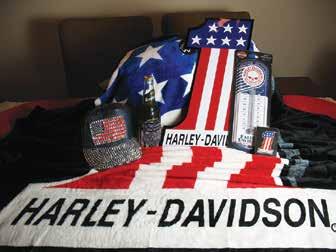
Kat’s Eyes Optical 1016 Woodland Ave katseyesoptical.com

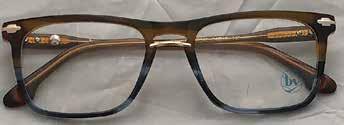

Bender’s Shoes 2116 Maple Grove Rd. bendersshoes.com

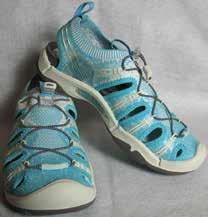
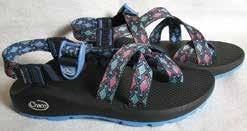




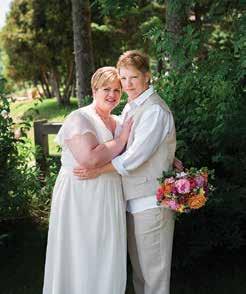



Stock Car Racing

June 3 (Sundays all summer)
Cheer on your favorite stock car drivers at Proctor Speedway. $12 adults, $9 kids and seniors. Younger than 12 free. 800 N. Boundary Ave., Proctor. proctorspeedway.com
Vegan Cookbook Club
June 7
Share recipes and make new friends. Mount Royal Public Library, 105 Mount Royal Shopping Cir., Duluth. 11:30 a.m. Free.






Park Point Rummage Sale
June 8-9

Four miles of sales, food available. Cross the lift bridge and find a spot to park on the street, then start your adventure. All sales are on private property.
Duluth Monarch Festival
June 9
Third annual event includes information from beekeepers, garden society, vendors. Local seeds for milkweed and other pollinator plants for sale. Balloon twisting, face painting,

We make every effort to ensure the accuracy of this information. However, you should always call ahead to confirm dates, times, location, and other information.
snacks. Sessions on photography, gardening, vegetation management. 10 a.m. to 2 p.m., Coppertop Church (First United Methodist), 230 E. Skyline Parkway.
Pat Benatar & Neil Giraldo

June 10
Hear the famed couple perform an acoustic set. $39.50$75. DECC Symphony Hall. 7 p.m. doors open, 8 p.m. show. Call (800) 745-300, visit the DECC ticket office or ticketmaster. com.
Grandma’s Marathon events
June 14-16
grandmasmarathon.com.

• Grandma’s Marathon is Saturday, June 16, and the weekend includes a variety of events. All-youcan-eat spaghetti dinner Friday, June 15, 11 a.m. to 9 p.m. at the DECC’s Pioneer Hall. $14 adults, $7 ages 5-12, free for 4 and younger. Advance tickets
available, (218) 727-0947.
• Essentia Health Fitness Expo, 4-8 p.m. June 14, 10 a.m.-8 p.m. June 15. Free admission. DECC Arena.
• Whipper Snapper Races, June 15. Registration starts at noon; races start promptly at 2 p.m. Bayfront Festival Park. Free for ages 14 and younger.
‘Pinocchio’
June 14-17 and July 12-15
The Duluth Playhouse’s Theatre for Young Audiences presents the classic tale with songs and interactive experiences. ThursdaySaturday at 7 p.m.; Saturdays and Sundays at 2 p.m. $12-$15. duluthplayhouse.org.
Father’s Day at the zoo
June 17
Put on your superhero cape and get to the Lake Superior Zoo faster than a speeding bullet! Celebrate Father’s Day from 10 a.m. to 2 p.m. Enjoy superhero activities and soda floats. Superhero disguises encouraged. 7210 Fremont St. (218) 730-4500. info@lszoo.org
Twin Ports Wind Orchestra
June 18
“Our Favorite Marches,” last concert of the season. 7 p.m. at Weber Music Hall, 1151 University Drive. Free.
June 22, June 24
Lyric Opera of the North celebrates the opening of the NorShor with a production of Don Giovanni set in the “Golden Age” of 1930s Hollywood. Christina Baldwin directs, Dirk Meyer conducts, and Calland Metts stars in the title role. $38-$60. June 22 at 7:30 p.m., June 24 at 3 p.m. Visit loonopera.org.


June 23
Pies, jams, breads and more. Crafts for sale, largest leaf contest, games, crafts, music and stage shows. First Lutheran Church, 11th Avenue East and London Road. Starts at 9 a.m. (218) 720-6521. chumduluth. org/rhubarbfestival.htm
June 23-24

Shop works by 120 artists in various mediums along the shore of Lake Superior. Music, demonstrations and food. 10 a.m. to 5 p.m. (218) 428-1916. parkpointartfair.org
June 28
Sponsored by the Swedish Cultural Society of Duluth, 12:30-4 p.m. Lutheran Church of the Good Shepherd, 1325 N 45th Ave E. Activities for all ages include painting dala horses and making floral crowns. The program featuring Paul and Mary Dahlin and Ross Sutter begins at 2 p.m., followed by decorating and raising the Midsommar Pole. The day ends with coffee and Swedish refreshments. A $5 donation is requested for adults. Free for ages 11 and younger. Contact: Nancy Lahti, (218) 727-4416.
June 29-July 1
The Children’s Theatre presents the showcase performance for summer intensive actors ages 8-13. Friday at 7 p.m., Saturday at 2 p.m. and 7 p.m., Sunday at 2 p.m. $15-$17. duluthplayhouse.org.

Rockin’ the Park with Hairball
July 3
Concert of 1980s tribute bands. Lights, video screens, smoke fire and screaming fans. Bayfront Festival Park. Doors open at 5 p.m. Tickets available at etix.com or the DECC ticket office.
The Music Man
July 12-29
The Duluth Playhouse brings this famed musical to the Norshor stage. There’s trouble in River City when a fast-talking salesman gets his heart stolen by the town librarian! Thursday-Saturday at 7:30 p.m. Sundays at 2 p.m. $25-$45. 211 E Superior St. duluthplayhouse.org

Scotty McCreery
July 14
The country music superstar plays at Black Bear Casino singing hit such as “Five More Minutes” and “I Love You This

Big.” McCreery won Season 10 of American Idol at age 17. $40-$85. 1785 highway 210, Carlton. blackbearcasinoresort.com


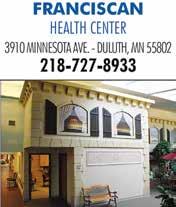
5K Trail Rivet Run/Walk

July 15
Enjoy the beautiful trails and waterfalls while participating. Door prizes and refreshments. Registration limited to 100. Pattison State Park, 6294 S. State Rd. 35, Superior. 10 a.m. $25-$35. zapevent.com/reg/event/14989



Woman-Made: Marvelous Things Made by Northland Women

July 28
Shop for locally-made items from about 20 female artists. This local art and gift fair is in its 10th year. Peace Church, 1111 11th Ave. E. 10 a.m. WendyUpNorth.com
All Pints North Summer Brew Fest
July 28
Join the brewers of Minnesota by the shores of Lake Superior at Bayfront Festival Park in Duluth, and celebrate craft beer two ounces at a time! Event will feature beer from breweries around the region, live music and tasty food in an iconic setting. Bayfront Festival Park, 350 Harbor Drive. 3 p.m. Free.


 By Alison Stucke
By Alison Stucke
Ittook some time, but Jamie and Monica McDevitt say they always knew it would happen. They believed that one day, they would be living in their beautiful farmhouse in the country.
Today, that dream has come true.
Ever since he was a little boy, Jamie talked about living in the country. Years later, both Jamie and Monica owned smallish houses inside the city limits. When they became a couple, they sold those homes and bought land in Gnesen Township, where they lived patiently with Jamie’s mom and saved their money so they could one day afford to build on their property.
Continued on page 50

“We bought the land six years ago,” Monica said. “We found it in the winter, when it’s the most beautiful.”
“We bought our house plans a year after buying the property, and every year, we’d revisit the plans,” Jamie said. “We chipped away at it as we could afford it.”
Jamie and Monica worked with Heather Hiner to design the home, and Jamie — who is a licensed contractor — did much of the work to build it. He started in May 2017, and the couple moved in March of this year. It took six years, but their long-awaited home is built, and they’re enjoying every minute of living in it.



“We’ve put in a lot of custom touches that are important to us,” Monica said. “It’s even more fun to live in it than to think about it and plan it.”
An old-fashioned roof-covered porch welcomes visitors as they approach the home, which is practically surrounded by large pine, cedar and birch trees. Wood pillars and concrete flooring stamped to look like wood grain repeat the woodsy feel onto the porch.

Upon entering the home, the wood theme continues throughout the entryway, and the open-concept kitchen, dining room and living room. “Adura Napa Tannin” flooring by Mannington looks like cross-cut wood planks, but it’s actually made of easy-care vinyl. A dark wood cubby in the entryway is a place for winter gear to land, Monica said. Huge pieces of 400-year-old white pine reclaimed from the Globe Elevators in Superior by Old
Continued on page 52



































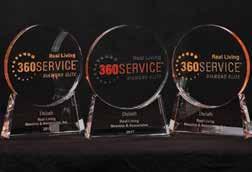











Globe Reclaimed Wood Company fill the rooms, including the long dining room table hand-made by Northshore Wood Products, a barn-style door made by Jamie and Monica, which opens to an office just off the kitchen, and a large accent wall near the living room.


“We just really liked that local history,” Jamie said.
A breakfast bar, coated in Baer “Pure White” stain, is the centerpiece of the farmhouse kitchen area. It
has space for stools on one side, and roll-out shelves and drawers offer built-in storage on the other side. Its Silestone quartz countertop in “Alpina White” contains flecks of browns and grays, blending well with the kitchen’s slate-colored aluminum appliances, including a double oven/range top where Monica cooks. The kitchen and dining room walls are painted in Baer’s light green-gray color “Weathered Moss.” Above the dining room table is a piano-style window—just one of many
unique window shapes and sizes that appear throughout the home.
“Peppercorn Gray Wash” cabinets by Showplace include a full-sized pantry, as well as a garbage/recycling area, hidden away in a drawer. Above the huge composite sink with a brushed nickel-finish faucet is a large Marvin Integrity window that brings in light and gives a fabulous view of the woodland behind the country home. The McDevitts worked with Katie at Arrowhead Supply to design the beautiful and efficient kitchen.
The cabinetry and countertop styles repeat in the living room at the entertainment center. Walls here are also covered with Weathered Moss by Behr. The deck off the living room makes for convenient outdoor entertaining, or just relaxing and appreciating the surrounding scenery . A powder room off the front hallway includes a pedestal sink. Energy-efficient LED “Halo” lights are well-placed throughout the lower level. The extra-wide stairwell, with walls painted in Behr’s “Mortar,” has a metal railing hand-measured and made by Grant at Arrowhead Iron, and it leads to the second story, which repeats themes, colors and textures found downstairs.
An upstairs among the treetops
“Greenwich Village” is the Baer paint color used upstairs. It’s similar to the soft gray-green-blue colors downstairs.
“Since we were going for a farmhouse, clean-linen feel, we chose a farmhouse pallet,” Monica said.
A dark-stained maple Shaker-style door opens to a guest room at the top of the stairs. Next is the laundry room
Continued on page 54




with a stainless-steel washer and dryer. An upstairs guest bathroom has the same cabinetry as in the kitchen, and a rounded tub with brushed nickel Delta faucets.

The master bedroom includes a walk-in closet, and the master bath features a whirlpool tub and a walk-in shower with two showers. Custommade tile in the bathroom is a naturallooking rock mosaic. Windows all around allow a view of the treetops surrounding.
“It feels like a spa retreat when you’re just getting ready for work in the morning,” Monica said.
In the master bedroom, windows give a spectacular natural view. A tray ceiling with rope lighting provides additional light.
“All you can see are the treetops,” Janie said. “And the sunrise. We’ve had a bunch of beautiful sunrises since we moved in.”
From the deck off the master bedroom, a little creek running behind the house can be heard, as well as the many birds singing in the surrounding woods.
The basement holds more surprises and special features


Much of the home’s walk-out basement is made up of a sleek workout area where Jamie trains for mountain bike races and half marathons. This room is painted the same color as the main floor, and it has drop panels and an acoustic ceiling — so that many of the workings of the home can be easily accessed — and a sheet vinyl floor.
Also at the lowest level is the couple’s movie room, which includes touches of paneling of the same reclaimed wood as upstairs, and four comfortable recliner/gliders with spaces for snacks and drinks. This room is painted a surprisingly deeper blue color called “Arrowhead Lake” by Baer.

This level of the house includes in-floor heat. The rest of the home is heated by forced air.
“We also have a heat pump that can heat and cool the home,” Monica said.
One special feature that can’t be forgotten is found in the garage: a built-in dog shower specially made for Chilee, the McDevitts’ beautiful Norwegian Elk Hound. It’s a working dog shower made with the same stone mosaic tile seen in the home’s smaller bathrooms, and the pewter faucets and fixtures found throughout the home. This home truly does include many custom-designed features thought up by the owners!

“I’ve wanted to have land on the woods since I was a kid, so to finally have it is amazing,” Jamie said, and Monica agreed.
“After all the hard work, it’s so great to enjoy the house,” she said. “We get to come home every day and live here.” D
Alison Stucke is a Duluth freelance writer and frequent contributor to The Woman Today.
McDevitt home continued on pages 56-61
General Contractor:

Orion Construction
Subcontractors:
Arrowhead Supply – cabinetry/countertops



Hiner Home Design - plans
Excavating- Dirt Works Specialists
Well- Sunnaborg Drilling
Concrete and foundationKiminski Cement Works
Rough framing- Everest Const. Group
Insulation- The Carpentry Works
Overhead doors- Quality Garage Door Service
Siding- Thompson Exteriors
Drywall finishing- Andy’s Drywall
Tile- Hedley Const.

Plumbing- Anchor Plumbing and Heating
HVAC- Cosgriff Climate Control
Lighting – Menards
Carpet – Johnson Carpet One
Security – Precision Electronics
Arrowhead Iron-they custom fabricated all the metal parts of the stair railings.



Top: The McDevitts' office sits just beyond the dining area and serves as a primary workspace for Jamie.





Bottom: A large entryway cabinet features pullout drawers and offers ample space for storing outdoor gear.























Americans waste a lot of good food, between 30-40 percent of our food supply, according to the U.S. Department of Agriculture. Some of that waste occurs during harvesting and processing, but the USDA estimates that 31 percent of food is wasted at the retail and consumer levels.
We, of course, are the consumers, and we all waste food. When surveyed, most Americans said they waste less food than their friends and neighbors. In other words, like the parents in the Prairie Home Companion city of Lake Wobegon, where “all the children are above average,” we all believe than we

are below average in wasting food. As a logical statement, this must be a selfevident falsehood.
Since I think my wife, Jerri, and I waste less food than most people, I offer a little quiz for the sake of comparison.
Question 1: Do you eat bananas after they have turned brown?
Question 2: Do you cut the “bad spot” off the apple you forgot about and eat it?
Question 3: Do you save three tablespoons of mashed potatoes for lunch?
Question 4: Do you save the tablespoon of leftover gravy to put on
the potatoes?
Question 5: Do you boil the turkey carcass, pick off the meat and save the broth?
Question 6: Do you save ham bones to make soup?
If you can answer yes to all six, you are doing very well. But if you want to compete with Jerri, you have to answer yes to this question also.
Question 7: Do you clean out the shortening can with a spatula to save the last bit of grease to season the cast iron frying pans?
If your answer is a resounding YES! you are a leading warrior in the battle against food waste.
The old-fashioned soup bone is one way to combat food waste
And if you’ve saved a ham bone, you have a good start on a great soup.
Ham and Great Northern Bean Soup
1 lb. great northern beans
Water
1 ham bone
Ham skin (if available)
1-2 cups chopped ham
1 or 2 chicken bouillon cubes
1½ cups chopped carrots
1½ cups chopped celery
1 cup chopped onion
2 cloves garlic
1 bay leaf
1 tsp. dried thyme
⅛ tsp. ground cloves
½ tsp. white pepper
Salt and black pepper if necessary
Rinse the beans the night before, discarding any debris. When I was a kid, it was not uncommon to find a tiny stone or two in the dry beans. I haven’t found one in the last three or four years, but I always look. Put the beans into a large bowl and cover them with cold water.
Next morning, put the beans into a five-quart saucepan or Dutch oven and cover them with water. Bring the pan to a boil, reduce the heat and simmer the beans for about 45 minutes, until they begin to get tender. Drain the beans and set them aside. Reserve the bean water.
Put the ham bone into the Dutch oven or a soup pot. Cover the ham bone with cold water and bring the pot to a boil. Reduce the heat and simmer the bone for at least an hour to make the broth.
While the ham bone is simmering, clean and chop the vegetables. I like to chop the carrots into quarter-inch rounds, the celery into half-inch pieces and the onion into a quarter-inch dice. Mince the garlic and chop the ham. The amount of ham you need depends
on how much meat was on the ham bone. I chop it into a half to threequarter-inch dice. Set the meat and vegetables aside in a bowl.
After simmering for an hour or so, the meat should be falling off the bone and most of the flavor from the bone and skin (if used) will be in the broth. Remove the ham bone and skin from the broth and set them aside to cool.
Add the chopped ham, chicken bouillon cube, vegetables, bay leaf, thyme, cloves and white pepper to the pot. If necessary, add enough of the bean water to cover the vegetables by a half inch or so. Bring the pot to a boil and reduce the heat to a simmer.
Remove the meat from the ham bone and add it to the soup. Mash a half-cup of beans and stir them into the soup, then add the rest of the beans plus a little more bean water and continue simmering the soup until the beans are tender.
Taste and adjust the seasoning with salt and freshly ground black pepper if necessary.
Serve with a salad and good bread.
NOTES: If the ham bone and meat are from a very salty ham, you might want to use only one bouillon cube. Add a teaspoonful of instant bouillon if the soup needs more salt when you first taste it. Stir and simmer the soup for a minute and taste it again before making the final adjustment. • • •
Many people are becoming more interested in reducing food waste. The USDA has a good page about the Food Waste Challenge that sponsors programs to help businesses and organizations achieve a goal of cutting food waste in half by 2030, usda.gov/ oce/foodwaste. The U.S. Environmental Protection Agency has an excellent site on the sustainable management of food, epa.gov/sustainable-management-food.
One good example of a program designed to reduce food waste was started several years ago at Pine City, Minn. Named after a western Wisconsin lady known for her Christian generosity, Ruby’s Pantry now serves dozens of communities in Minnesota and Wisconsin from distribution warehouses in southeastern Minnesota and central Wisconsin. Visit rubyspantry.org/fooddistributions/find-a-distribution-nearyou to find a location.

Trucks deliver food and other items to communities where volunteers work at a “Pop Up Pantry” once a month. Everyone is invited to attend. Ruby’s Pantry is devoted to sharing food and other necessities to anyone who can use them. People of all income levels and diet preferences are welcome. The only request is that you not waste the items you receive. If there is something that you cannot use, give it to a neighbor or a local food shelf.
That’s what Jerri and I do, and we think that it is a wonderful program.
Chuck Rang grew up on the South Shore and now lives in New Richmond, Wis., with his wife, Jerri. His blog, Courage in the Kitchen: Recipes and Reminiscences, appears on Area Voices, a product of Forum Communications Company. D
Owning her own floral business is a dream come true for Leslie Hietala of Superior. She has owned Artistic Florals By Leslie since October 2016 but has been doing floral design for decades.
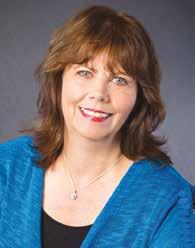
“When I started in the business in the ’70s,” she said, “I just really loved the design, loved crafting art. I liked working with the public.”
Leslie HietalaHer store was a dream a long time coming in part because as with many families, “life happens.” Hietala has experienced many challenges: a premature birth, a husband with a brain tumor, a mother with Alzheimer’s — her own misdiagnosis of breast cancer. One thing after another, her plans had to shift and move back.
“It took a long time,” she said. Her current husband of 23 years has been a main source of support. “If you don’t do this now,” Hietala recalled him saying, “I think you’ll regret it.”
Now living the dream, Hietala has a strong family history to be a small business owner.
“I learned good work ethics,” she said, “what it’s like to have a satisfied customer. It was always done with such love in their heart and caring.”
“By the grace of God” is a phrase Hietala uses a lot, a testament to her strong faith and guiding principles. “Things happen when they’re supposed to,” she said. “I put things in God’s hands, and when it’s supposed to happen, it will.”
Working with brides is one of her favorite parts of her work. She also has enjoyed teaching community education classes.
She feels a strong connection to her customers and community. People have asked her sometimes if she’d like to relocate to Duluth, but the answer is always no.
“I want to have a Superior business,” she said. “I like the community.” D
Phone: (715) 718-5688
Address: 1705 Tower Avenue Suite 100
Website: superiorartisticflorals.com








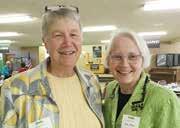

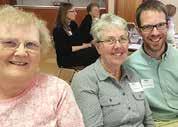
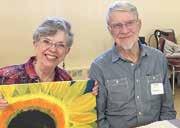
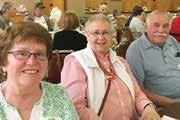
CHUM, a nonprofit supported by several Duluth congregations, provides shelter, food, dignity and hope for the homeless. The nonprofit held an appreciation luncheon for volunteers at Our Saviors Lutheran Church on April 23. Volunteers donated 14,200 hours. “That’s the equivalent of 7 full-time positions,” said Lee Stuart executive director of CHUM.
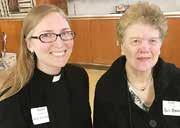
The Twin Ports Mustang & Ford Club was started in 1998 to exchange information and promote camaraderie. On April 21, members of the club cruised to Hayward, then gathered at the wayside rest outside of Superior on U.S. Highway 2. Member Joan Steltz said a young man once approached her and said, “Aren’t you a little old to be driving a car like this?” “Sonny,” she replied, “You need to be a little bit older to afford a car like this.”


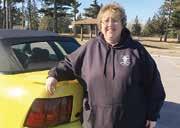

The Humane Society of Douglas County held its Paws for Love fundraiser at the University of Wisconsin-Superior on April 21, raising more than $26,000. “This is our biggest event of the year,” Executive Director Sheila Keup said about the evening of fine dining, music and auctions. “It’s a great night to visit friends.
